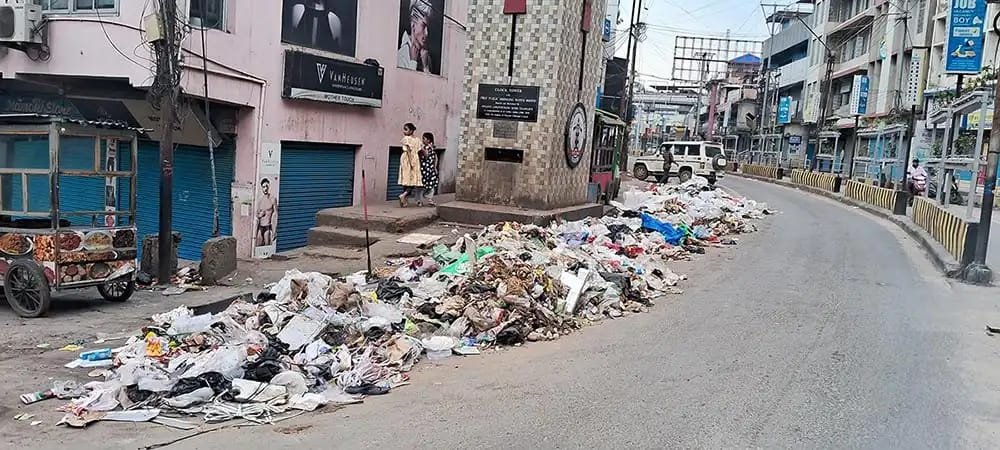Dimapur, the bustling commercial hub of Nagaland, is facing a significant challenge stemming from its increasing population and rapid urbanization: a surge in waste generation coupled with an inadequate garbage disposal system.
Multifaceted Waste Management Challenges:
The waste management issues confronting Dimapur are complex and far-reaching. The city struggles with effective waste collection, appropriate disposal methods, and the detrimental environmental consequences of poor practices. These challenges underscore the urgent need for a holistic strategy to tackle the root causes and consequences of inefficient waste management.
Need for Immediate and Planned Action:
Addressing Dimapur’s waste crisis promptly appear challenging without a well-defined plan for managing municipal waste. This plan must be accompanied by substantial efforts to educate and modify the waste handling behaviour of the city’s residents.
Lack of Civic Sense Fuels Garbage Accumulation:
A primary driver of the widespread littering in Dimapur is the apparent lack of civic responsibility among its inhabitants. Common practices include shopkeepers, residents, and passersby dumping waste in open spaces, along roadsides, and in drains. Furthermore, garbage is frequently thrown from moving vehicles. The inconsistent irregular clearing of waste from public areas has further exacerbated the problem, leading to the formation of large garbage piles throughout the city.
Environmental and Social Consequences of Garbage Accumulation:
The accumulation of garbage at various points within Dimapur poses significant environmental and health hazards. Moreover, these unsightly heaps and the emerging foul Odors detract from the overall quality of life for the city’s inhabitants, contributing to a negative perception of Dimapur.
Breakdown in Waste Management Infrastructure:
The persistent presence of substantial garbage piles indicates a potential failure or inadequacy within Dimapur district’s waste management infrastructure and practices. This breakdown could be attributed to several factors, including insufficient waste collection services, limited capacity at landfill sites, or ineffective enforcement of existing waste disposal regulations.
Civic Duty Extends Beyond Voting:
As Dimapur’s citizens recently participated in the 18th Lok Sabha poll, exercising their democratic rights, the city simultaneously witnessed the accumulation of foul-smelling garbage at various junctions. While voting is a crucial aspect of civic engagement, citizens must recognize their broader responsibility towards their community. This responsibility includes actively contributing to the cleanliness and environmental well-being of their city.
Dimapur stands at a crossroads. The escalating waste crisis, fuelled by rapid growth and a lack of civic responsibility, demands immediate and comprehensive action. Addressing this challenge requires not only infrastructural improvements and effective waste management policies but also a fundamental shift in public behaviour. The cleanliness and environmental health of Dimapur are a shared responsibility, extending beyond the act of voting. Only through a concerted effort involving government, residents, and businesses can Dimapur overcome this challenge and secure a sustainable and healthy future for all.

